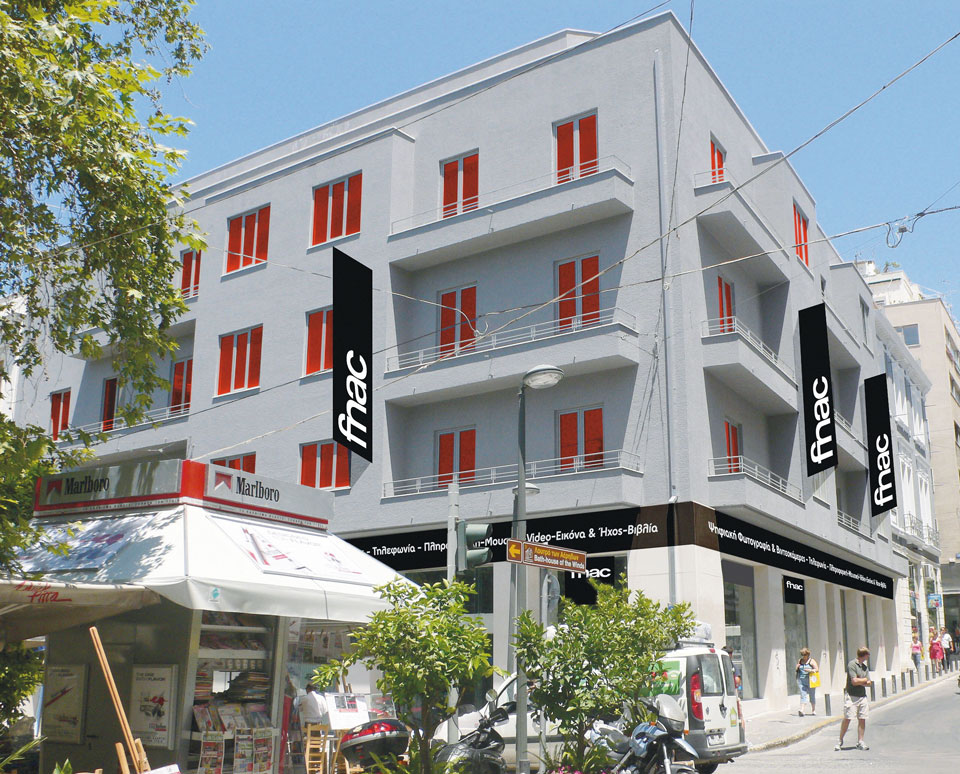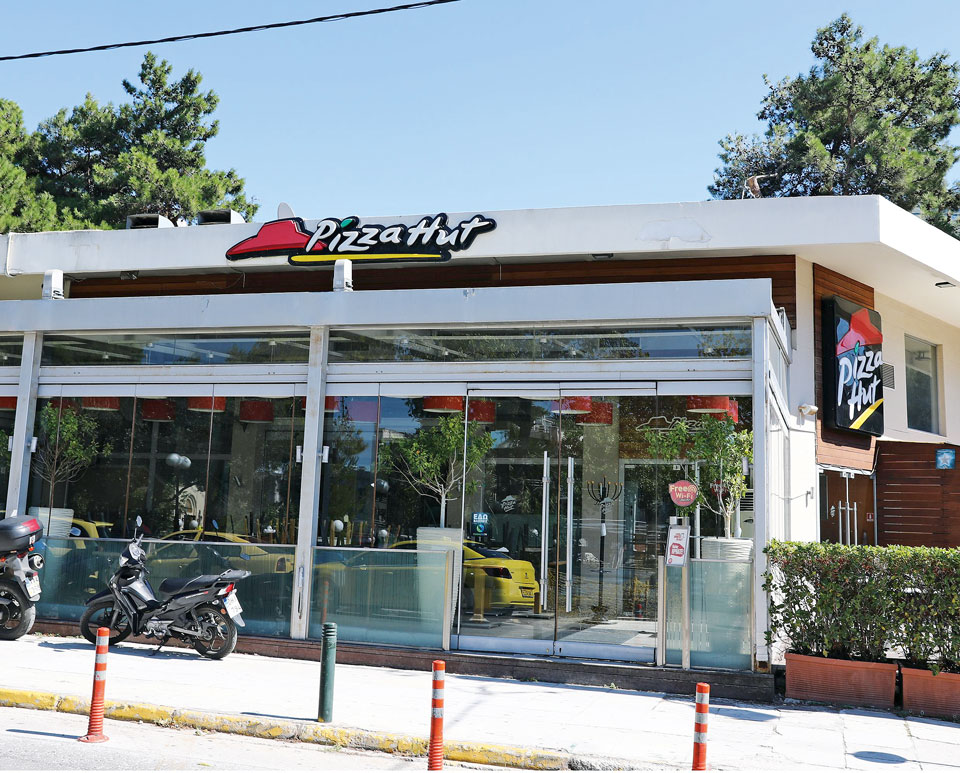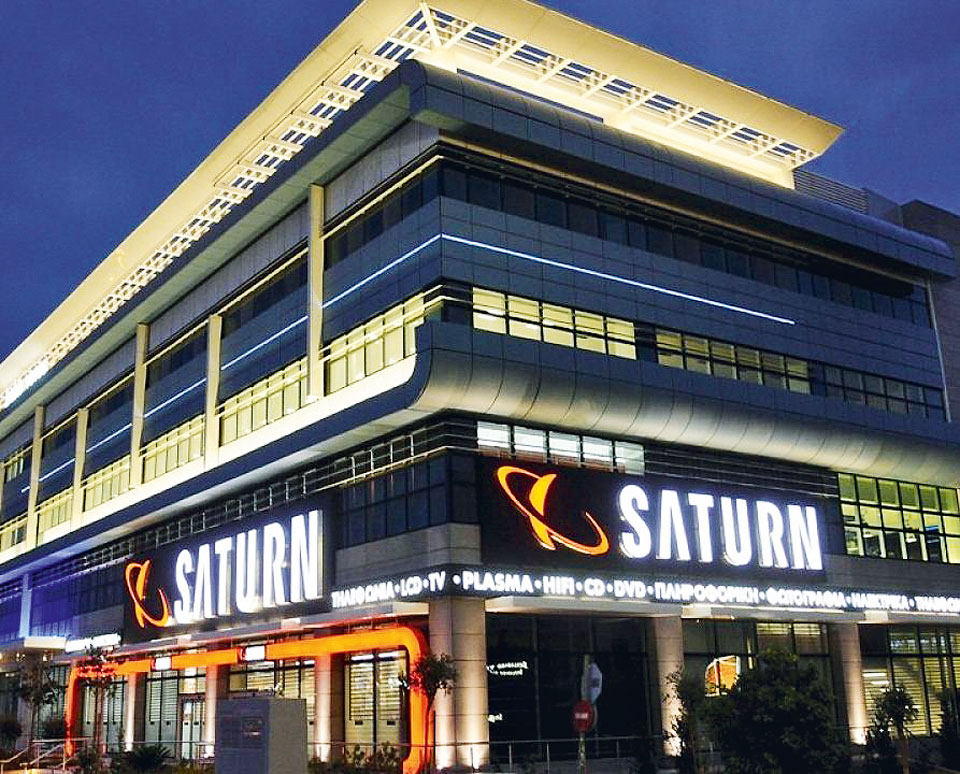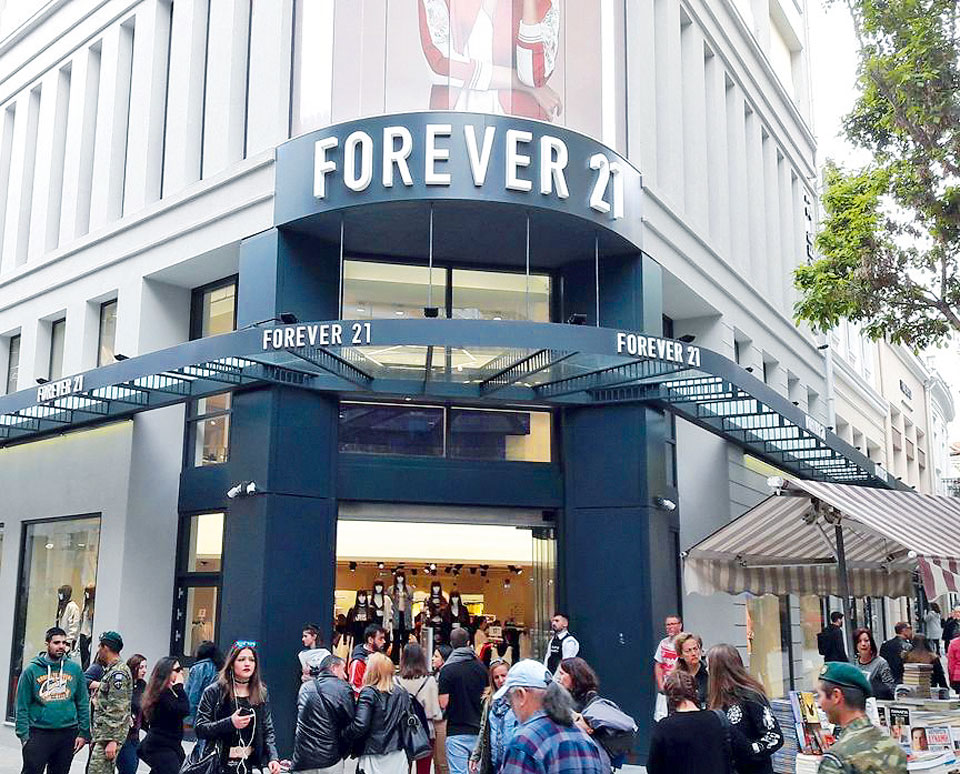
They came, they saw and they left. The reason why the multinational retail and catering chains that started in the Greek market, often “after a lot of trouble”, and eventually left it, is somewhat unfortunate, despite the fact that they are successful in the rest of the world. For example, Germany’s Aldi may be one of the largest supermarket chains in the world, with around 12,500 stores in Europe, the US and even China, but it only left Greece after 1.5 years of operation. The arrival of the French Fnac in Greece in 2005 was considered a mega-commercial event in the retail industry, which left the Greek market five years later, while the German tech chain Saturn also suffered an ignominious end. In the midst of a pandemic, but discredited a few years ago, Pizza Hut in Greece, one of the most recognizable pizza chains (with a hall) in the world, has completely closed. The Ermow corner store didn’t last long enough for Forever 21 to get back on its feet, and the problems in this case stemmed from the bankruptcy of the parent company.
The economic crisis, incorrect assessments of consumer behavior, poor choice of partner, the main reasons.
The economic crisis of the previous decade, the wrong choice of partners for development in the Greek market, insufficient study of the conditions in the Greek market and in the Greek public administration, as well as consumer habits in Greece, were supposedly the main reasons for the shameful end of transnational networks in Greece, despite the fact that it is a country whose consumers love well-known brands.
At the same time, of course, chains such as the Polish Sinsay, which opened its first store in Greece on Friday, in particular in Heraklion, Crete, as well as the Polish Pepco, the British JD Sports, Holland & Barett, are arriving in the country. developed by the Furli group and several others. After all, retail – and to a lesser extent focus – is an industry that has always been characterized by great mobility and rapid adaptation to current market conditions.

It never fascinated Greek consumers
On a July afternoon 2010, it was announced that two of the three flagship stores of the French culture and technology chain Fnac, at The Mall Athens and Glyfada, would now operate under the Public brand, while the Fnac brand would continue to operate. for a short time, a store that the French chain only opened in November 2009. Fnac started in Greece with celebratory tones in 2005, during the era of “fat cows”, participating in a joint venture scheme with the Marinopoulos group, in which the French company owned 51% and the Greek company 49%. The company’s plan, as announced in November 2009, was to open 8-10 stores by 2012, of which 5-6 in Athens, 2 in Thessaloniki and the rest in Patras, Larisa and Ioannina. The withdrawal of Fnac from Greece in the summer of 2010, when Greece was already in a memorandum of understanding, was largely due to the beginning of the economic crisis in the country. However, earlier it turned out that the network did not have the expected appeal to the Greek public, and there are many who associate the flight with the fact that it was developed in collaboration with the Marinopoulos group, whose activities had a great resonance. a well-known end in later years.

Another model that did not survive crises
He appeared in Greece in 1989, opening his first store in Kefalari, and left for good in 2020, the first year of the pandemic. The reason for the emergence of one of the most famous restaurant chains in the world, Pizza Hut, a pizza that was advertised in 1997 by the last leader of the Soviet Union, Mikhail Gorbachev, and two years earlier, in 1995, by the future US President Donald Trump.
In the decade 2000-2010, the company grew rapidly and reached a network of 45 stores, but the economic crisis that hit Greece in 2010 caused strong shocks, as it caused a reduction in consumption outside the home.
After all, Pizza Hut evolved largely on an on-site consumption model, with stores with large halls, and even more so on a take-out and delivery model, which meant high operating costs.
In the period 2010-2014. 27 chain stores are closed and activities are limited to Attica. The economic crisis, high comparative prices, non-renewal, as well as being absent from online platforms, combined with the 2020 lockdown, led to the decision to permanently close the network in Greece in the summer of 2020. It is noted that the network developed in Greece on the basis of Food Plus SA.

Expensive premium products while the crisis was approaching
It was advertised as a chain of electrical stores offering premium products with high aesthetics but high prices. And it was. Except that in 2008, when it started operating in the Greek market, the financial crisis was less than two years away. The reason for the emergence of the German Saturn, a subsidiary of the Media Saturn group, which has already been operating in Greece under the Media Markt brand since 2005. The first Saturn store on Singrou Avenue was opened in September 2008, followed by a store in Gerakas two months later and three more stores until 2011. Then the Germans decide to rename the two above-mentioned stores and another one (in Stavroupoli, Thessaloniki) to MediaMarkt, which was their most economical, most massive brand, and close the other two Saturns to Larisa Station and Pylaea Thessaloniki. Judging by the events of subsequent years, this was, perhaps, the beginning of a common end for the Media Saturn group in Greece, since in 2019 it came under the control of Public (interests of P. Germanu). The economic crisis may have accelerated the course of events, but the originating reason was different: the company constantly introduced unprofitable uses, did not increase its shares despite the “lock” in “Electronics”, but carried out incorrect manipulations, for example, for example, an operating store expensive equipment in the area of Larisa station.

Brilliant start, inglorious end two years later
It opened its doors to the Greek public on 1 April 2017. Much? May be. The opening was not an April Fool’s joke, but plans to continue and expand in the Greek market. Forever 21 opened a single 3,000 m2 store on four levels at the intersection of Ermou and Evangelistria streets, which closed after two years, although this name is actually a misnomer (forever means forever). The opening took place on March 31, 2017 at a colorful event with the participation of artists and models, which did not herald the ignominious end of the inexpensive casual clothing chain.
Initial plans included expansion of the network in Thessaloniki and other cities of the country, as well as in shopping centers. Teren Management Europe was authorized to develop the network in Greece and a total of 16 countries.
However, the ignominious end of the American network Forever 21 is clearly related to the negative course of the parent company based in Los Angeles, which went bankrupt in September 2019 and decided to stop its activities in Asia and Europe and focus on the US market. .
The store that previously housed Forever 21 on Hermou Street is now home to Fourlis Group’s Intersport store.
Large investments that did not bring results
The award for the shortest-lived supermarket chains in Greece is apparently claimed by the German Plus and Aldi, the first of which entered Greece in 2006 and left it in 2008, selling its stores to AB Vassilopoulos, and the second in 2008 to leave in 2010. Both have, in fact, made significant investments in stores and distribution centers. Plus built 33 stores and Aldi 38, with the latter investing €1.2 billion in stores and two distribution centers in Thessaloniki and Patras. Aldi’s departure was particularly sensational as it occurred in 2010, when the financial crisis was thought to be good for its sales as it is a hard discounter and consumers were already turning to private label products.
The departure of Plus from Greece is largely due to the change in the ownership status of the parent group (in 2007 it was acquired by 70% by the Edeka group) and the fact that the stores belonging to the Tengelmann group were acquired by others.
The case of Aldi Sud, considered by many to be Lidl’s formidable rival, is quite different. While sources within the German company claimed that the decision to leave the Greek market was due to the state of the Greek economy, market analysts believe that mistreatment of management played a catalytic role – there were even successive leadership changes in senior management. echelons of the company since the autumn of 2009 – mainly about the high cost of developing stores and distribution centers. In the year Aldi Dia Hellas left, Carrefour-Marinopoulos was acquired, and two years later French Carrefour waved its scarf by selling its stake to Marinopoulos, with the usual continuation in subsequent years. In 2014, it was the turn of another German group, the Metro Group, to leave the Greek market by selling Makro Cash & Carry (which was renamed The Mart) to Sklavenitis, ending a 22-year presence in the Greek market.
Turkish company that did not enter Greek houses
The most recent exit from the Greek market has been Turkish home improvement chain English Home, which, after closing 17 stores in the past two years, has also closed its flagship store at River West Mall.
The Turkish chain entered the Greek market in 2014, but failed to make a profit and achieve significant sales.
Regular changes in management, as well as alleged disagreements with the owners of the premises in which the stores were located, are also considered a determining factor in the company’s negative course.
Founded in 2008 in Turkey and owned by the Aydın business family, the company is nevertheless doing well in Turkey, as well as in Bulgaria and Romania, and has stores in Poland and Ukraine.
In total, the Turkish network has more than 400 stores in Turkey and the above countries.
Source: Kathimerini
Lori Barajas is an accomplished journalist, known for her insightful and thought-provoking writing on economy. She currently works as a writer at 247 news reel. With a passion for understanding the economy, Lori’s writing delves deep into the financial issues that matter most, providing readers with a unique perspective on current events.